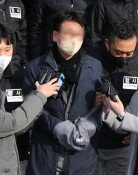Vicious cycle of Korea's broadcasting and communications agency
Vicious cycle of Korea's broadcasting and communications agency
Posted July. 03, 2024 07:49,
Updated July. 03, 2024 07:49
Chairman Kim Hong-il of the Korea Communications Commission (KCC), a crucial regulatory body overseeing broadcasting and communications, resigned on Tuesday. His departure leaves the agency under the sole leadership of Vice Chairman Lee Sang-in. The preemptive resignation comes at a time when the opposition party attempted to paralyze the KCC's operations, which include composing the boards of public broadcasters such as MBC with pro-ruling-party figures. To that end, the opposition party proposed the impeachment of Chairman Kim. Kim's predecessor, Lee Dong-kwan, did exactly the same to avert his impeachment, which could have paralyzed the KCC. The government plans to appoint a new chairman to restore the two-member leadership and complete the reshuffle of the public broadcasting board in favor of the ruling party.
The KCC, a collegial body of five senior members, has been under turmoil for the past 13 months, witnessing its head being changed for the seventh time amid political struggles over control of public broadcasting. Following the dismissal of Chairman Han Sang-hyuk in May 2023 due to his indictment for alleged involvement in the broadcaster's re-authorization process, two members sequentially served as acting chairman until Lee Dong-kwan's appointment in August of the same year. After Lee resigned, Vice-Chairman Lee became the acting Chairman. As Kim resigns this time around, Lee will be taking over as acting chairman for the third time. It has already been 11 months since the dysfunctional leadership of two members, both appointed by President Yoon Suk Yeol, has been running the commission with three standing committee seats recommended by the National Assembly vacant.
It is no news that the ruling and opposition parties were at loggerheads to take control over the public broadcasting and the KCC, its regulatory agency. However, it is unprecedented that the confrontation has been so extreme and ugly that it caused severe disruption to the agency's operations. Chairmen who barely served three or six months have been consecutively threatened with impeachment and resigned, and the prolonged operation of the two-member system is unprecedented. Early in 2024, the reauthorization processes for 34 broadcasters and 141 broadcasting stations were delayed, making their airing practically unlicensed for a while. It was also the first time a court ruled against the BCC's decision to reshuffle the public broadcasting board under the two-member system late last year.
Due to political power struggles over broadcasting control, issues such as imposing fines on Google's and Apple's in-app payment abuses have been sidelined. Long-term tasks such as restructuring the discriminatory regulatory system to align with the trend of broadcasting and telecommunications convergence remain untouched. It would be odd enough not to hear criticisms rise against the public broadcasters and the KCC that no longer serve their purposes and waste scarce frequency and precious taxpayers' money. Their self-destructive, pointless, and dysfunctional confrontation should end here by restoring the agency's fundamental purpose with five leadership members with expertise and rationale rather than political proxies from both parties.
Headline News
- Top four S. Korean companies have fewer young workers
- Transcripts of Seoul City Hall reversing vehicle incident revealed
- Kamara Harris emerges as potential successor if Biden steps down
- Brazil, Uruguay to clash in 2024 Copa America quarterfinals
- Opposition parties table a special probe bill on Cpl. Chae’s death







